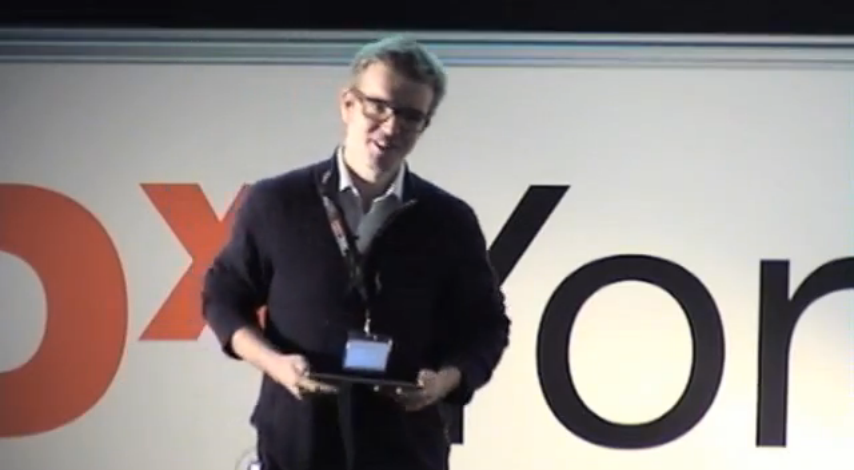I just saw this video linked in a blog post by James Buckhouse, the man behind #TeamClassical. Peter Gregson has a great message about what classical music can learn from restaurants. It’s worth listening to the whole talk and hearing him flesh out the ideas, but basically he’s saying that restaurants understand that they need to give you context, welcome you in, and have people there who can explain the menu to you.
Classical concerts, not so much. There’s a lot of extra meat in that thought, too. Celebrity chefs like Mario Batali, Heston Blumenthal, etc., are, apart from being great chefs, fantastic public ambassadors for the awesomeness of food. Their passion makes you excited and interested.
It’s a great presentation. Watch it. I’ll wait.
Watching that video reminded me of an idea I had a while ago, but didn’t finish writing up, partly because I wanted to talk to a restaurateur about it. I still haven’t, but I think the point is strong and I’m going to write about it anyway.
It’s about how much information restaurants have always had about their customers, and how little classical musicians used to have. With the flood of data and communication that’s overwhelming everyone this decade, that’s changing, and suddenly classical musicians have access to a lot of information that they didn’t before.
I’ve said this before, but here we go. We’re used to talking about how much more artists have to be public and visible and transparent to their audiences (which is a good thing, though it’s also more work, for those of you keeping score at home), but we’re not nearly as used to talking about how much more information about the audience is available to the artist.
It’s that information, and the act of listening to it and communicating, that turns an audience into a community.
Restaurants have had this for ages
Restaurants have, as Gregson says, waiters and front-of-house staff who greet you, talk to you, show you to your table and help explain the menu. Sometimes the chef comes around, but not always. There’s decor, there’s atmosphere. Restaurants understand that they have to create the full experience (which is Gregson’s point). My point is that they’re helped immensely to do this by all the information they get about their customers.
Some of it is numerical, quantitative data. How much of that dish did we sell? How many liked it rare, medium, or well done? Who sent it back? How many substitutions? How well did people tip? Did one member of staff generate more tips than another?
Some it it is very much not numerical. Were there special requests? How happy did they look while they were eating? Did they say anything on the way out about recommending the restaurant to a friend, or about coming back soon? Did anyone have any suggestions for new dishes or changes to existing ones? Did everyone make a face at that painting? Really? But I like it…
And some of it isn’t even officially ‘data’. Some of it is just the mood of the place during the dinner rush, the offhand comments about the customers that anyone makes. Humans are really great at picking up things about other humans, and so a lot of what you learn about people isn’t through official feedback. You just absorb it. And that feeds back into how you make your art and how you present it to the world.
If you own a restaurant, you pay attention to this stuff. Your business, and all the work your put into it, could go down the drain if you don’t react and change based on all that information.
Classical music doesn’t really have a culture of understanding this stuff, and it really doesn’t have a culture that forces you to change and react to it.
Musicians are just getting this information now
If you like a show, you can usually just tweet at the artist. A few weeks ago I saw Gabe Kahane‘s musical, February House. It was amazing. So on the way out I tweeted at him:
https://twitter.com/kevinefclark/status/213448720153460736
That tweet doesn’t add up to much, but put it together with all the other tweets, the in-person comments, the press reviews, the box office numbers, the fact that the run of the show got extended, and everything the cast and crew say about the mood of each audience, and you learn something. And that something should help you be a better musician.
If you conduct a lot of your musical life online, there’s even more data to parse. Youtube views, insight data, analytics data, comments, reblogs, external links, facebook threads, and all of the actual conversations with audience members that you have online. And if you want to really build a community, if you really want to do what Gregson is recommending, you need to take that information seriously, and you need to act on it.
Do that, and you have a shot at turning your concerts into awesome experiences more like a great restaurant meal. Do that, and you have a shot at being a celebrity chef in classical music.
I don’t work in restaurants
But I’d particularly welcome feedback from anyone who does. And I’d really love to hear from you how you learn from your customers. What’s your process for taking in that information? Is there an official one, or do you do it all by gut? How does that information impact what you decide to do or change?
Learning how you do it will help us poor musicians to catch up. Plus we’ll come play in your restaurant if you want.
